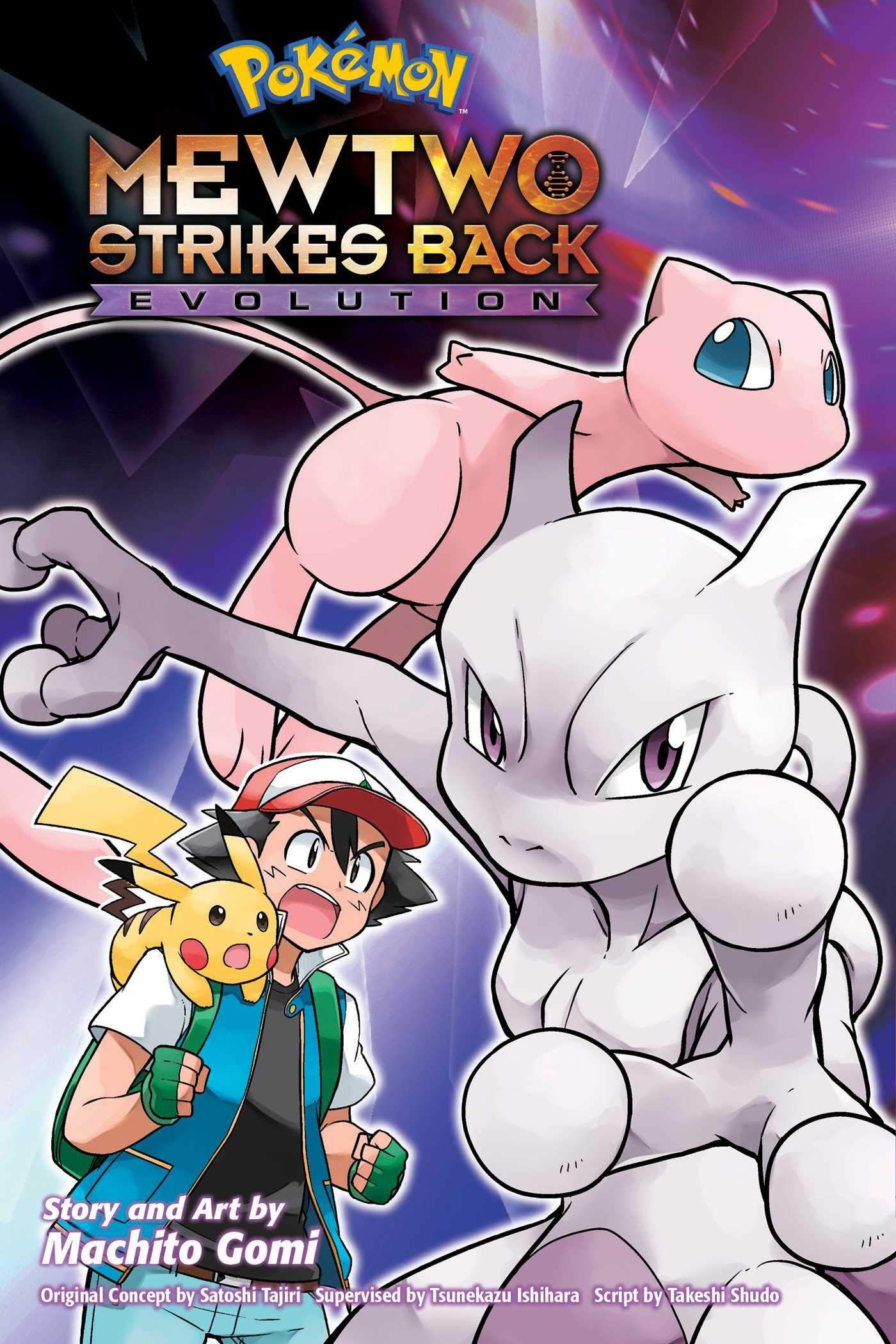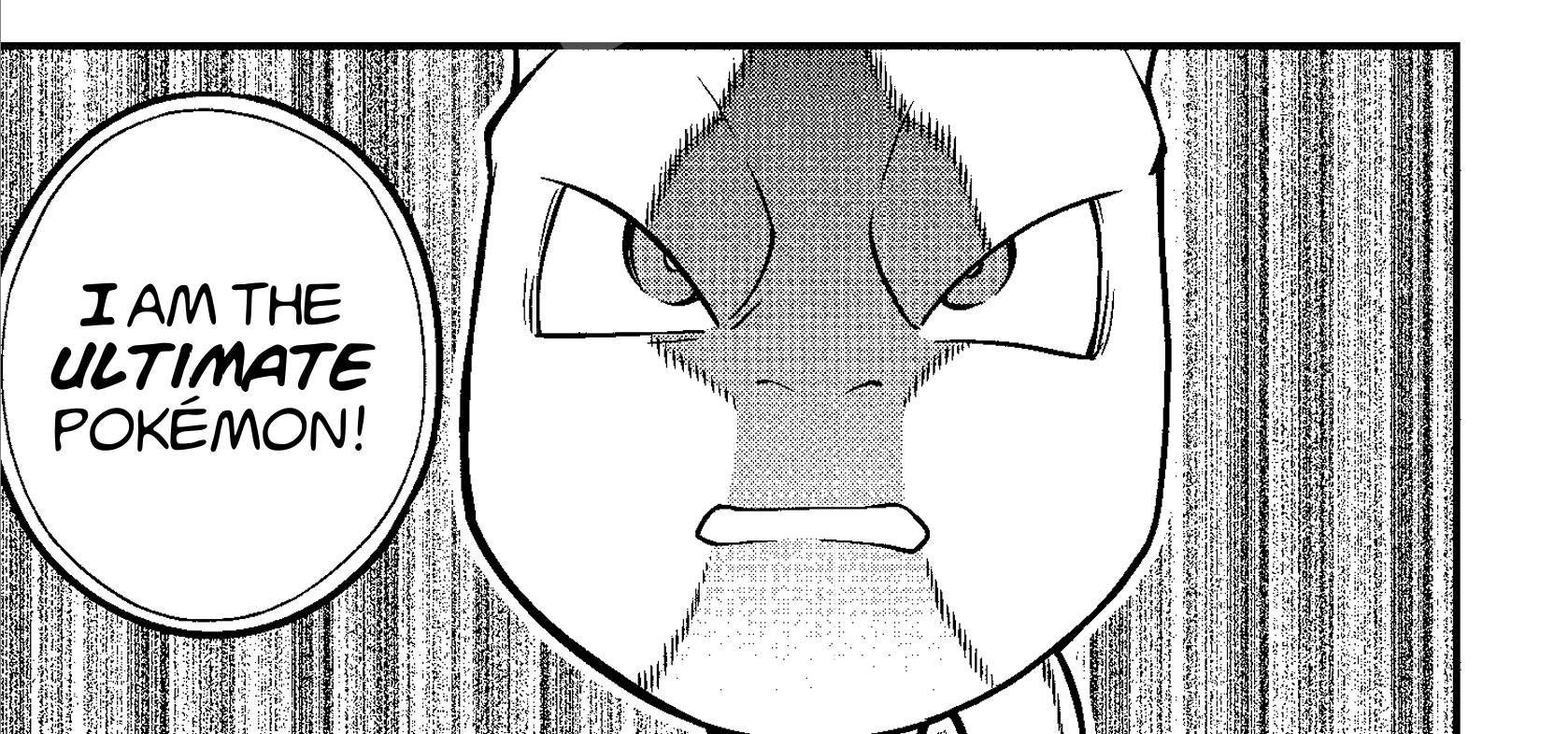Pokémon: Mewtwo Strikes Back - Evolution Will Appeal to Completionists Only
- WRITER
- Machito Gomi
- Artist
- Machito Gomi
- Publisher
- Viz Media
- Price
- 9.99
- Release Date
- 2020-08-11
For children of the '90s, the first Pokémon movie is hallowed ground in cinema history. Does the film, released two decades ago now, hold up today? Possibly not but, then again, it doesn't really have to. For most, the nostalgia value alone far outweighs the need for critical objectivity. Mewtwo's existential crisis, Ash being resurrected from a stony grave by Poké-tears, Team Rocket disguised as Vikings for... reasons... Virtually every moment of Mewtwo Strikes Back is etched into the minds of the franchise's first-generation fans.
As proof of its endurance, the film received a CG remake last year to mark its 20th anniversary, and its this remake that Viz Media's Pokémon: Mewtwo Strikes Back - Evolution takes its name from. Written and illustrated by Machito Gomi and based on Satoshi Tajiri's original concept and Takeshi Shudō's original script, the manga essentially serves as a novelization of the movie. If you're looking for a different spin on a now-classic tale, you won't find it here. Gomi's version takes few deviations and little creative license with Shudō's work, which, for some fans, will be exactly the blast from the past they're after.
As per the film, the story starts with the creation of Mewtwo, the first artificial Pokémon, who was engineered in a laboratory from the fossilized eyelash of the Mythical Pokémon, Mew. Just like its genetic forebear, the clone is a powerful Psychic-type and highly intelligent. In fact, it quickly becomes vocally resentful of its lab rat status and breaks free, seeking vengeance on its creators for playing God (or Arceus). As a show of dominance, Mewtwo invites Ash, Misty, Brock and a group of other strong trainers to a mysterious island for a clash that will decide the future of the Pokémon world. Along the way, however, the new Legendary Pokémon continues to question its true purpose.
While Ash Ketchum and his trusty Pikachu are the franchise's poster boy and mascot, respectively, this literary version of the film reasserts that Mewtwo has always been its real star -- and remains a high watermark that Pokémon has yet to replicate even 20 years on. For younger viewers, Mewtwo was a gateway into a classic sci-fi theme introduced in Mary Shelly's Frankenstein. Not born but crafted by the hands of man, Mewtwo's awareness of this fact is its undoing from the get-go. To this end, something that Gomi's writing brings more to the fore is the symbolic weight that Mewtwo places on its cloned Pokémon army, using them as external instruments of its own internal turmoil. Should its clones lose, Mewtwo reasons aloud, then its own existence is forfeit. As long as the Poké-riginals remain, their clone's right to exist is threatened.
Gomi also trims some of the fat, so to speak, of the movie's script -- shortening Ash, Misty and Brock's stormy voyage and giving Team Rocket less prominence as a result. It's hard, too, to recapture the added gravitas that some of the voice acting and brooding musical score lent to the story in its original medium. This, combined with the vibrant cel-shaded colors replaced by black-and-white panels also exposes the original story's threadbare nature somewhat. There really isn't much meat on Mewtwo Strikes Back's bones in terms of plot; rather, the characterization and thematic depth of Mewtwo do all the heavy lifting.
Gomi, who is also helming the current iteration of the Pocket Monsters series, replicates the familiar, rounder-faced style that the Pokémon manga is known for very competently, though it's a style that doesn't quite convey Mewtwo's intimidating presence well enough in places; its design benefits from sharper angles and elongated shapes, instead. But there are some panels -- the burning ruins of the laboratory and shadows falling over Mewtwo's face in close-up -- that are particularly striking. Visually, the manga is at its best during the fight between Mewtwo and Mew, wherein the frame-by-frame nature of the medium enables readers to get a blow-by-blow view. And, hey, there's no wrong way to draw a crying Pikachu that isn't heartbreaking. That's just science.
Pokémon: Mewtwo Strikes Back - Evolution certainly isn't a must-read for anyone after a fresh perspective on a story that's now reached its third retelling (or fourth or fifth, it's easy to lose track at this point). But Pokémon diehards whose shelves are lined with manga, figurines and, of course, video games, will want to make space for it in their collection. After all, this is a franchise built around completionism.


